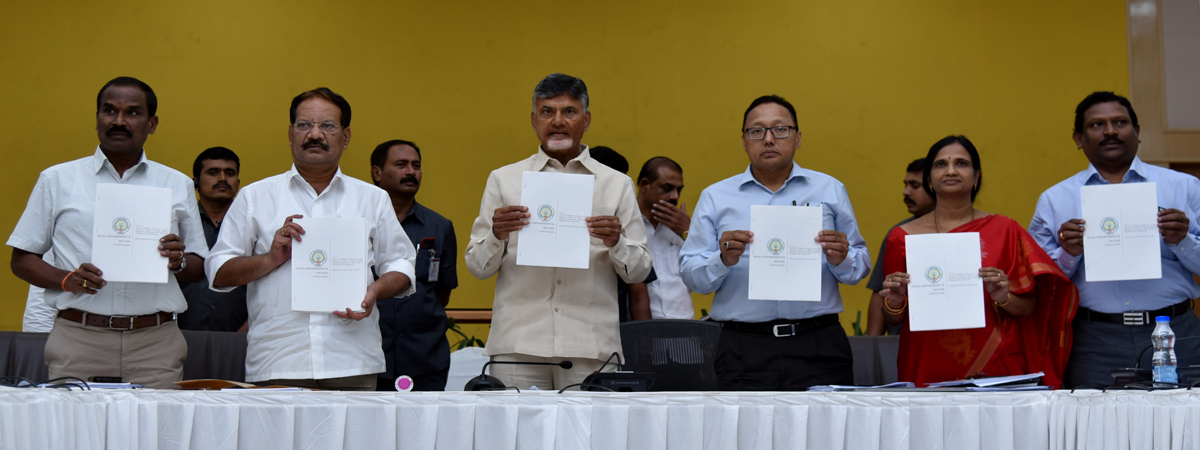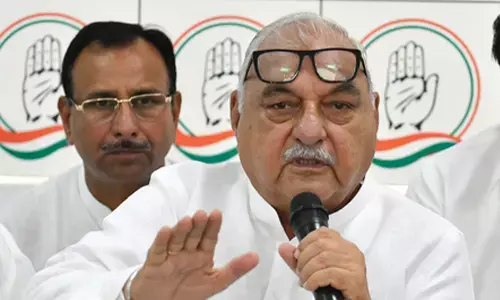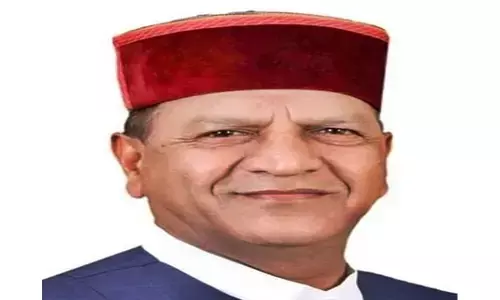Welfare key to address poverty: Chandrababu Naidu

He further said that this Rs 1 lakh crore expenditure was in addition to the debt redemption schemes implemented for farmers to the tune of Rs 24,000 crore, interest waiver on farmers loans of Rs 4,000 crore, loan waiver for SelfHelp Groups to an extent of Rs 10,000 crore
Amaravati: The state government spent more than Rs 1 lakh crore on welfare schemes in the last four-and-a-half years, said Chief Minister N Chandrababu Naidu while releasing a White Paper on ‘Social Empowerment and Welfare’, at his residence at Undavalli on Tuesday. This is third White Paper in the series of 10 papers announced by the Chief Minister.
He further said that this Rs 1 lakh crore expenditure was in addition to the debt redemption schemes implemented for farmers to the tune of Rs 24,000 crore, interest waiver on farmers loans of Rs 4,000 crore, loan waiver for Self-Help Groups to an extent of Rs 10,000 crore.
This White Paper encompasses the departments of social welfare, tribal welfare, BC welfare, minorities welfare, differently-abled welfare, rural development (SERP), municipal administration & urban development (MEPMA), labour, E & T (Chandranna Bima) and housing.
The paper was released in the context of challenges and issues faced at the time of bifurcation, policies adopted and schemes implemented to overcome the challenges, the significant achievements made, and the way forward.
He said that the welfare programmes play a key role in economic uplift of the poor, hence the TDP government launched several programmes for their benefit. Creating wealth by using available resources is only way to reduce poverty, he said.
The state govt has been implementing welfare programmes right from birth of a child and giving priority for family and society welfare. Across the three departments of social welfare, BC welfare and tribal welfare covered in the sub plan, the budget allocation increased from Rs. 12,716 crore in 2014-15 to Rs 25,904 in 2018-19. Similarly, expenditure had increased from Rs 11,120 crore to Rs.14,567 crore for the said periods.
An amount of Rs 12,833 crore has been disbursed to an average of 16 lakh unique students per year, in the period 2014-15 to 2018-19 under Post Matric Scholarships.
The government has enhanced the scholarship rates to all categories under Post Matric Scholarships scheme. Diet charges have also been increased up to Rs.1,400 per month.
The White Paper said cosmetic charges have also been significantly increased per boarder per a month from July, 2018 up to 150 per cent in the schools and colleges.
“Until 2013-14, the Overseas Education Scheme covered only the SCs and STs. This government has extended the coverage to include BCs, Minorities, EBCs & Kapus,” it said.
Under new scheme of NTR Unnatha Vidyadarana introduced to provide professional guidance to students appearing for competitive examinations Rs 1.30 lakh per student is paid as institutional fee and Rs 10,000 per month is paid to the student as a stipend for nine months. Another new scheme Chandranna Pelli Kaanuka so far benefited 35,987 applicants with expenditure of Rs 139.25 crore.
As many as 7,636 works were taken up in 110 municipalities in SC localities at a cost of Rs.953.00 crore. Twenty new residential school buildings were taken up at an estimated cost of Rs 281.95 crores.
Augmentation works were taken up in 138 residential schools with an estimated cost of Rs.522.00 crores. The government has sanctioned 76 new BC residential schools during the last four years. Six residential schools have been started exclusively for the fishermen community.
Two independent residential junior colleges and 12 upgraded junior colleges have been started in the last four years to provide educational security to the BC students.
Under NTR Bharosa, pension amount was enhanced from Rs 200 to Rs 1,000 per month to old age, widow, weavers, toddy tappers and AIDS patients.









